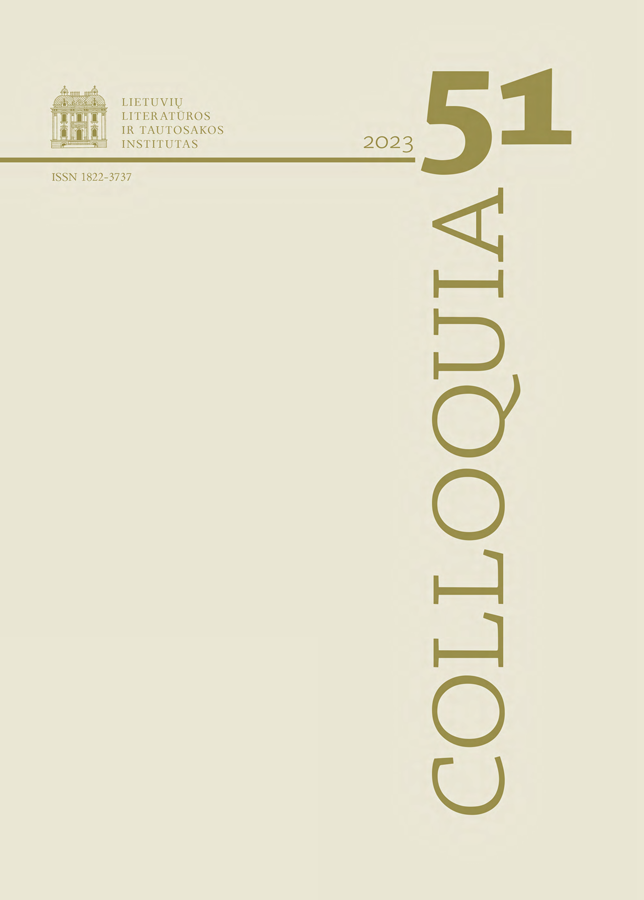The Dynamics of Tomas Venclova’s Reputation in the Russian-Language Press in Lithuania (1989-1998)
Abstract
The analysis of author’s literary reputation and the factors that shaped it are important for the history of literature and biography of individual authors. This article aims to examine the evolution of Tomas Venclova’s reputation in the Russian-language periodical press in Lithuania over a decade. At the beginning of the period in question, texts, some of which were published in other languages outside Lithuania much earlier, shaped Venclova’s reputation. The author was characterized using properties assigned to him previously, that of a scholar, poet, and dissident. During the period of restoration and consolidation of Lithuania’s independence, Venclova acted as a public intellectual and critic of political, social, and cultural life. At the same time, his reputation as a poet, whose poetry was compared to the verses of Czesław Miłosz and Joseph Brodsky, received more and more validation. In terms of Pierre Bourdieu’s analytical apparatus, the peculiarity of Venclova’s case is that he was acting as an agent of three different fields: literary (poet, translator, and literary critic), scientific (literary scholar), and political (public figure and essayist).
Downloads
Most read articles in this journal
- Pavel Lavrinec, The Interpretation of Tomas Venclova‘s Vilnius Text , Colloquia: Vol. 42 (2019)




